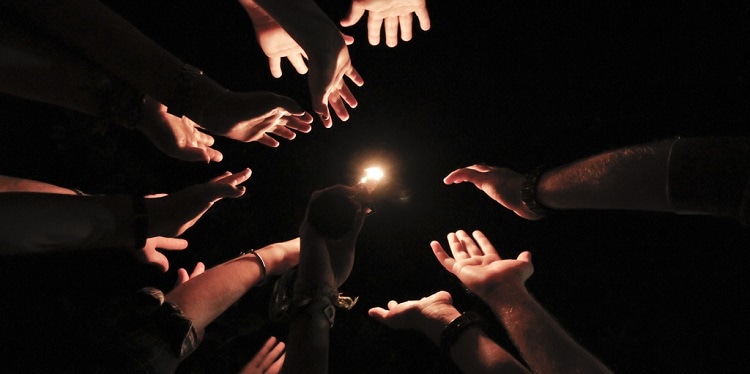Elijah Before the Messiah
The Fellowship | October 26, 2018

Elijah went before the people and said, “How long will you waver between two opinions? If the LORD is God, follow him; but if Baal is God, follow him.” But the people said nothing. — 1 Kings 18:21
At the very heart of Judaism is the Sabbath — the only ritual ordained in the Ten Commandments. In a world where there are so many distractions, it is imperative to learn about and cherish the one day a week set aside for rest and contemplation, a day Jews call Shabbat. This is one of 12 devotions exploring the many lessons we can learn from this rich observance. For more teaching on the Sabbath, download our complimentary Bible study.
At the conclusion of every Sabbath, Jews perform a special service called havdallah, meaning “separation.” It is through this ritual that we separate the holiness of the Sabbath and the regular weekdays. After the service it is customary to sing: “Elijah the prophet . . . speedily come to us with the messiah, son of David.”
Additionally, a focal point of the Passover ritual meal is the Cup of Elijah. It is a goblet that is filled with wine or grape juice, symbolizing the future redemption, and is set aside for the prophet whom we symbolically welcome to the meal by opening our front doors and calling him in.
What is the significance of these customs and why is Elijah the prophet so closely associated with the coming of the messiah?
The answer can be found in the book of Malachi 4:5: “See, I will send the prophet Elijah to you before that great and dreadful day of the LORD comes.” Elijah is the precursor to the messiah. There is an opinion among the Jewish sages that the messiah cannot arrive on the Sabbath, and so as soon as the Sabbath ends, the first thing we do is pray for Elijah to come in order to bring the messiah immediately. Likewise, on Passover, as we pray for the ultimate redemption, we ask Elijah to join us so that the messiah can follow.
However, of all the prophets, why is Elijah the one chosen to herald in the messianic era?
I think that the answer can be found in our verse today where Elijah challenged about 900 priests who worshiped idols to a duel in which the false priests would sacrifice a bull as an offering to their god, and Elijah would present one to His God. The god who would be able to light a fire and burn the sacrifice would be declared the one true God.
As can be predicted, no matter how much the idol worshipers prayed, danced, sang, and did whatever they could, no fire came from heaven to accept their offering. Then it was Elijah’s turn. To add more drama to the challenge, he drenched his altar in water, and when he cried to the one true God, a fire immediately came down from heaven and burned the offering to a crisp — including the water! It became clear to all that the God of Israel was the only true God.
So you see, Elijah is the great clarifier. He proved to the world that there is only one God, the God of Israel. When we pray for the coming of Elijah, we are really praying that we should have that clarity throughout our lives – never to rely on money, other people, or our possessions. We pray that we will follow God only, and with that clarity, will come the ultimate and permanent redemption.
